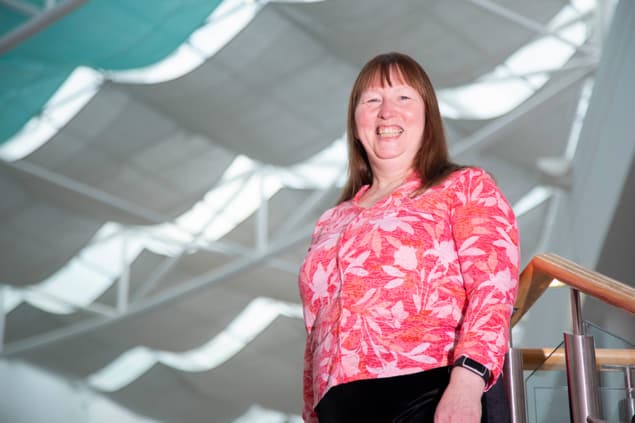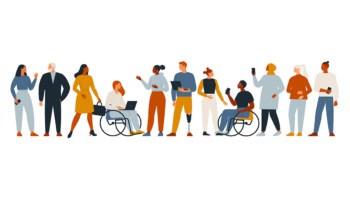Carol Marsh is deputy head of electronics engineering at aerospace engineering company Leonardo and is based at its site in Edinburgh, UK. Earlier this year she received an OBE for services to diversity and inclusion in electronics engineering @DrCarolMarsh

What skills do you use every day in your job?
At the start of my career and during my doctorate I used physics and maths. I produced designs with VHDL – a hardware description language that takes code and converts it into digital circuits. It’s different from a software language like C++, which runs a sequential set of instructions; instead, VHDL creates components such as flipflops that run in parallel.
The skill I use most now is communication. I’m always talking to customers, members of my team and organizations that promote engineering and diversity and inclusion. I do a lot of mentoring, mainly for people who want to become professionally registered and I regularly give presentations on technical topics, or about women in engineering. But my main job is chairing design reviews, which lets me see everything that’s going on across the whole site – all the different designs, how they work, what challenges the teams are experiencing, and every now and again I can still help people with their technical problems.
What do you like best and least about your job?
My job is to support a team of engineers and it’s wonderful to see someone who started off at the company straight out of university leading major projects several years later. It’s great to see them grow; I really enjoy that. I also like doing a wide range of activities: often I don’t know what I’m going to be doing on any given day. It can change instantly from updating a process, ordering licences, approving designs for release to the customer, or helping members of my team. The thing I like least is the number of meetings I have to attend; some days my diary is just full of them.
What do you know today, that you wish you knew when you were starting out in your career?
I wasn’t confident when I was younger. When someone asked me to develop a design, I’d look at it and think “How am I going to do this?” But over the years, I’ve learned to take really complicated problems and break them down into smaller parts that I can solve. So if I could go back, I’d tell myself to be more confident and learn from my mistakes. In engineering, if you’re not learning you’re not growing. In school, you’re told that failure is a bad thing, but in engineering it is an opportunity to learn – you have to stay flexible and adapt to new information as soon as you receive it, while remaining confident about your skills. That ability to adapt is becoming more and more important in engineering. I also wish I had a crystal ball, as 30 years ago I had no idea how phenomenal the electronics we have would become. I give talks about what I think the impact of electronics will have over the next 30 years and it’s going to be absolutely incredible.
- Carol Marsh talks more about her career in the 12 November edition of the Physics World Weekly podcast.


